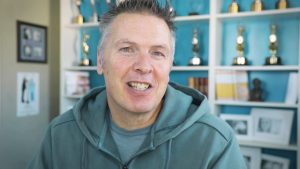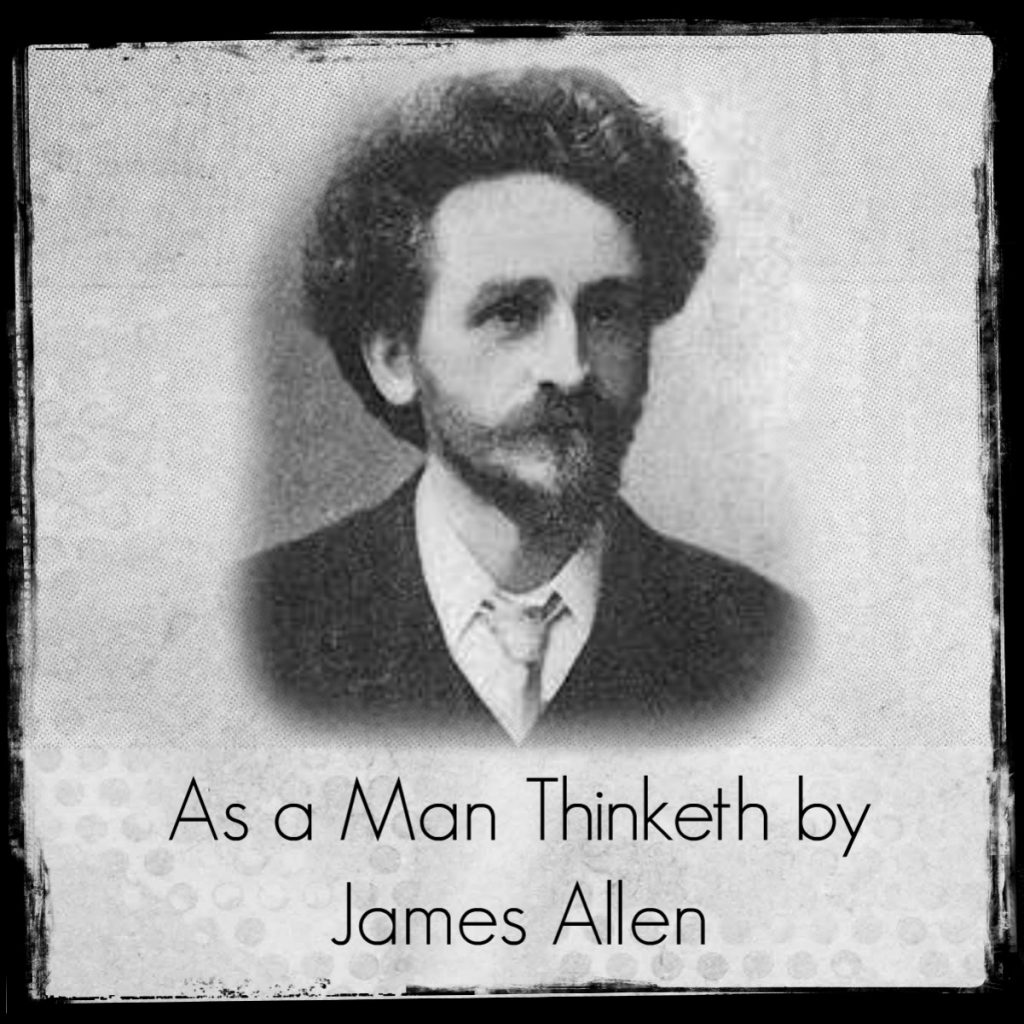Learn the difference between instinct, intuition, and inspiration, and the roles they play in entrepreneurial success. Discover how to conquer your Goliaths. Find out how and when unseen help will be dispatched to your aid. What is the role of passion for a cause? Learn how to accomplish the essential with intuition and instinct, but take it up a notch and you’ll accomplish the impossible with inspiration. When the vision is clear and the passion is strong, you’ll participate in miracles.
Originally recorded at Brigham Young University-Hawaii on April 11, 2019.
TRANSCRIPT:
Welcome to the Rare Faith Podcast where the solution to every problem is only an idea away, and where the same activity with just a little more awareness always yields better results. Award-winning best-selling author Leslie Householder bring some of her best information to this inspiring series of life-changing episodes that you won’t want to miss. Show notes for this episode can be found at a rare kind of faith.com.
[Music]
[Applause]
Thank you. I love having him [Trevan] with me, it’s not often that we get to do this together and it’s just a treat to have him here.
I am excited to be here, this is this is a dream to be in Hawaii and doing what I love to do, which is sharing some things that we learned over the years that have made a huge difference in our life.
So just to get started a little bit (…you said it’s the arrow buttons? Okay it’s just your finger… just kidding that’s my finger… it’s probably cuz it’s in here, click over there, yeah I’ll just do …okay… There we go. Give him a hand!)
So, just to introduce myself a little bit more too, so you kind of know why I’m here, like you said my name is Leslie Householder. This is my family, I have seven children ages 12 to 26. We live in Arizona, I graduated from Brigham Young University Provo with a degree in Mathematics Education. So perhaps you’re wondering why a math teacher is here to talk to you about entrepreneurial success. I’ll get to that, but first let me ask you, is this okay if we’re a little bit interactive? Alright, why are you here? What brought you to study entrepreneurship? Raise your hand if you have an answer for that, why you’re interested in entrepreneurship. Nobody is interested in entrepr-… there you go! To make money. That’s a perfect reason for wanting to be an entrepreneur. Anybody else? Freedom, yeah, the flexibility, call your own shots. Right, the upside potential. Right?
I would propose that no matter who you are, and what your reasons are for being here, that part of it is because you either have an idea that you want to develop, or maybe you’re passionate about a problem to solve, or maybe you just want to be. If it is just for the money, then some things that you’re going to want to figure out, so that you don’t burn out. And that is entrepreneurship.
Does anybody know who this man is? Anybody recognize him? This is a man by the name of Rudy Ruettiger. Has anybody heard that name? … No. You do? You have? All right, so this is a man who, when he was your age, he had a dream. He had a desire since he was a young boy to play football for Notre Dame. All growing up, he would play it into his mind what it would be like to play football for Notre Dame, and it became his obsession. He would recite what he would hear the announcers say about football games. He would just live, breathe, and dream about playing there.
The problem is, he didn’t have the academic skills for getting into Notre Dame in the first place, and number two, he wasn’t built to play football. He was a very small boy. And so these two giant obstacles were in the way of him achieving his dream, but that didn’t deter him. He knew there had to be a way for him to play football for Notre Dame, even though he wasn’t big enough for football, and even though he didn’t have the academic skills to get into the school.
So, long story short, they made a movie about him called Rudy. It’s one of my all-time favorites and I’ve seen football movies before, inspirational shows, I’ve seen them before, but this one was different. This one wasn’t about winning a football game, this was about one young man doing what he dreamed of doing, and what he overcame to actually achieve it.
In the last five minutes of the last game of the last season of his last year at school, he did manage to get into Notre Dame, because he found mentors along the way who would help him overcome the obstacles that he would face. But he ended up sacking the quarterback. You know, he wasn’t even allowed to play, but it was in the last game that the stadium had gotten word of what his dream was and started chanting his name to the point that the coach said, “Fine, whatever. We’re winning anyway. It won’t hurt anything to have him play.” And so he went to Rudy and he said, “All right, get in there.” You know, “we’re five minutes left, get in there.”
He’s like, “No, coach. I play defense!”
So all these years, he’s gotten to the point where he’s right there. He’s being invited to play, but instinctively he knows it’s not what he had imagined. He had it a certain way in his mind, what he had intended, and the coach was mad at him that he would reject the opportunity at that last minute. But just as Rudy said “No,” they lost the ball and it went defensive.
He’s like, “Get in there,” and so he got exactly what he’d envisioned, what he’d been training for and planning for. Now there’s a little piece to that story that I hadn’t really considered before, but it means more to me now today because of some things I’ve learned, and that is that he said, “No” in that moment when it looked like exactly what he’d wanted all along. Instinctively, instinctively, he knew that it wasn’t right. Yet.
Now that is one element of entrepreneurial success that I want to talk about… instinct. When you have passion for a goal, whether it’s passion for the money that you’re going to make as an entrepreneur, which I would invite you to get one step beyond that, and ask yourself, “What’s the money for?” What would you do with that money?
There are many, many times over the years that my husband and I learned these goal achievement principles that I’m going to teach you today …we would set money goals and then we would achieve the money goal, but at the same time, we’d have these unexpected medical bills or car problems or things that would eat up the money, and so we’d make the money and it never meant what we thought it would mean. … So we learned that instead of imagining making the money that we thought we wanted, we would imagine a lifestyle, what would that look like to our family? What kind of summer camps could we put our kids in? What could we do to help build their testimonies? What could we do to have more time with our families? Family. We have one family.
But that made a big difference, because then the goal (as we were achieving them) was actually the thing we thought we wanted. And you know, you can use the principles I’m going to share with you to make a bazillion dollars IF you need a bazillion dollars, but if you don’t, then why spin your wheels that way?
Decide what it is you want to accomplish with the money and let that be your goal. And that right there is going to be a key in helping you get the resources, the mentors, the unseen help, and that instinct or intuition that will kick in to help you get there.
So for the rest of my presentation to make sense I need to explain what was happening with me when I watched that movie. This was a picture of where we lived just a little bit earlier than then when I watched that movie, but this is an illustration to help you understand where we were at. Like I said, all I ever wanted to be was a mom and raise a beautiful family. I wasn’t looking for a career, but after we married, life hammered us pretty good for seven long years.
We would look around and we were like, “How does that family have a camcorder to videotape their kids? How does this family have a car that starts?” “How did they afford to live an apartment that’s nice?”
You know, we just couldn’t understand how other people were making things work, and it was in this apartment — this is the parking lot to the apartment where we lived — that I got so depressed and so frustrated and upset that we couldn’t get in front of our problems, that I came outside and there was – my broom had been broken in half by a neighbor kid. And I was in this mindset of such desperation that that was the last straw. And so to solve that problem I called the police.
This is where my mindset was. Can you think of any other way to solve that problem, than to call the police on the neighbor kid who breaks your broom? Do you have a neighbor like that? If so, they’re going through something. Have some compassion.
But that’s where we were at, and where ultimately our struggle brought us. You know, “Ask and you shall receive?” We were hungry for answers. We were asking questions and I was beginning to wonder if there was a God. I never questioned that before in my life, but I had thought, “Well, if you’re just righteous, you’ll prosper. What’s wrong? We’re doing the best we can. We’re living by all the laws of God that we understand to the best of our ability, so why is life so hard?”
Long story short (and time is short), so I’m just going to get to the good stuff, and then I’m going to point you to where you can get more information at no charge. Because I could spend about three hours with you if I had it, but he won’t let me.
So ultimately, when the lights finally went on, and we realized that it was the way we were thinking — the way we were responding to our challenges, the way I’m calling the cops instead of solving it in better ways — you know, it was how we were responding to our circumstances that was perpetuating the problem, and we didn’t understand that. But when we did, and we started to change it intentionally, a problem would show up and we would respond to it differently, according to these principles that I’m going to share with you.
In a relatively short period of time, we went from here to this home which we affectionately called our family magnet. This was our home for about nine years. It’s where our large extended family would gather regularly, because it was part of my dream to have a place where we could do that, and build those family relationships.
And the shift itself, when the income started to change, really was only about a three month lag. And this happened a couple years after that, but because the change was so dramatic, I found a passion, and that passion was to share what we had learned. To help [people] understand the principles that we learned, I wrote three books. They became bestsellers and by using the principles that I’m going to share with you, and it was in my bio (that you might have read before coming) that we made over a million dollars giving our books away for free, which is kind of a fun little result of following some thoughts that came as we applied the principles.
So now remember, I was just a high school teacher, but I was a teacher with two very important keys for entrepreneurial success. Number one, we had a problem to solve, and number two, we had a passion for the change that we wanted to see.
So what made the difference? What changed? I saw, both of us, we saw life through a different lens, and it helped us to know how to enlist the unseen help and activate, and trust the instinct or intuition that we needed.
Let me give you an example of how this works. On the next screen I’m going to show you a series of numbers, and on this screen your job is to find numbers 1 through 60 in sequential order, and see if there’s any missing. Okay, so are we ready? My husband Trevan is going to be our timer. Tell me when. If I left any out, just pay attention to which one it was. Okay, 1 through 60 in sequential order. Ready? Set, go.
[fast forward]
5 seconds …stop.
All right, how far did we get? Raise your hand. Tell me, what number you found? How far you got? 13. 25. 28. Anyone do better than 28? Pretty good! Pretty good! All right, so we’re going to do this again. We’re going to do this again, but this time I want you to notice that the numbers are organized into four quadrants. Number one is upper right quadrant. Number two is in the upper left quadrant, and they continue in a counterclockwise direction.
Okay, so with that in mind… is it a mac? Because… Trevan, will you get my charger out of there? (He wants me to wing this entirely. I can do that for three hours and more… )
All right, so we’re going to do this again, this time with that understanding in place about the four quadrants. Does anybody have any questions before we do this? No? Okay, … on your mark, get set, go!
[Fast forward…]
Five seconds… stop.
What was your question? 58. 58. How far did you get? Now tell me. They’re all there? You got the whole way through? By show of hands, how many did better the second time? Most of you did better. This is what I found when I started to understand these principles, the Laws of Success, because I found that I could do the same activity with a higher awareness and get better results. Same activity, higher awareness, better results.
So what was the difference between the first time you did it and the second time you did it? Structure? Structure. Was there structure there the first time? There you go. He says he wasn’t aware of the structure. So the structure – look, the numbers are in the same place both times. The structure existed the first time, too — but we weren’t aware of it until the second time.
And this is the same way with success in goal achievement… that you can do the same activities with a different mindset, with a different awareness, with different knowledge — same activity and get better results. So powerful.
This was a demonstration that was done for us years before we had our breakthrough, but this was one of those nuggets that we thought, “Man, there is something to this. There is something to this.”
So you heard them talk about this in conference recently, obedience to law: “There is a law irrevocably decreed in heaven before the foundations of this world upon which all blessings are predicated, and when we obtain any blessing from God it is by obedience to that law upon which it is predicated,” (Doctrine and Covenants 132:20 and 21). So I had heard this scripture before, but I didn’t understand that there were laws that govern success. Or at least they weren’t what I thought they were.
I reflected on the promise that, you know, “The righteous shall prosper.” I’d heard that before, but I thought that meant that if I was just good, I’d become financially well-off. But being good and being well-off are not necessarily connected, and I’m sure you can think of many examples where someone who is not necessarily a good person does well financially, and vice versa. It’s kind of like thinking that as long as I drive the speed limit, I can shoplift without consequence.
A man by the name of Bob Proctor taught us these laws that govern success, but for the sake of time I only have time to touch on one of them (and then I’ll point you to where you can read about the others before we’re done).
So this first one, the Law of Perpetual Transmutation, states that circumstances and resources are perpetually moving into form, or out of form according to our thoughts. And as long as we can see the end that we intend on the screen of our mind, and hold to the belief that we will find a way, then the resources and connections that we need begin to gather. But since it’s only in the last stage of the process that we see any visible evidence of this, it’s easy to doubt. And for me, when I learned about this one, just knowing that this was happening helped me hold on to the belief through the times where there was no evidence.
Now, do you see the clouds in the top image? They’re really wispy, right? Wispy, and barely there. But in the right conditions, they can continue to gather until they become storm clouds and the rain begins to fall, But not every wispy cloud becomes a storm cloud. It comes into form, sometimes it dissipates. Under the right conditions it will rain. But the process of going from vapor to rain can reverse at any point along the way, depending on the conditions in the atmosphere.
And for an idea or a goal to become a reality, our thoughts need to be optimistic and expectant, even when there’s no visible evidence. And so when I have an idea in mind of something I want to accomplish, I imagine it like a wispy cloud, and I think, you know, as long as I take steps towards this, as long as I imagine how it’s going to be, and how it’s going to feel when it’s done … I don’t have to go the distance like I thought I would have to, you know … do these superhuman feats to achieve superhuman results. I just had to see it done, and keep moving my feet, trusting that [with] every step I take towards that goal, it takes a step towards me. And the resources I need, the unseen help that needs to happen, the mentors that will teach me, and that intuition that I need, it’s going to be there as I need it. And as you believe, it’s true. You go back and watch all those Disney movies, and they’re telling you the truth, and it we hear it so often it becomes cliché, but it is true.
So basically, I needed to learn how to think differently than I’ve been thinking.
Albert Einstein said that “The significant problems we face in life cannot be solved at the same level of thinking we were at when we created them.” You know, I looked back during that time in our life, and how much, I especially, because, out of the two of us, he was the optimistic one. But I was constantly worrying and fretting over things that hadn’t even happened yet, and didn’t realize that I was having a contribution to those things coming about.
And so I needed to change the way I was thinking. I needed to learn how to live in harmony with the laws of success and to consciously follow principles that I now call Rare Faith. What is rare faith? Boyd K. Packer says it this way: “There are two kinds of faith. One of them functions ordinarily in the life of every soul. It is the kind of faith that relates us with confidence to that which is scheduled to happen… There is another kind of faith, rare indeed. This is the kind of faith that causes things to happen. It is worthy and prepared and unyielding, and it calls forth things that otherwise would not be. It is the kind of faith that moves people. It is the kind of faith that sometimes moves things… Directed and channeled, it has great effect.”
Now, here is a piece that I want to try to drive home, or at least open your eyes to. Rare faith employs two things, at the very least, and many more. But these are the two things that I want to talk about today:
First one is intuition, or that instinct that tells you what to do, when you’re faced with a choice.
The second one is inspiration, the inspiration is when you face something that’s bigger than you and you need some divine help.
Now, to illustrate the intuition side, or the instinct side, I’m going to use those words interchangeably. In the dictionary it’s used interchangeably. But that tape — that’s a tape. Do you guys know what a tape is? So, that is where audio recordings were stored when I was your age.
And before I married, and I’m in high school, and I’m with a friend and we’ve got this grand plan to ask these boys to a dance. And for this dance, we were going to have dinner before the dance. But to go to dinner, we thought it would be a whole heap of fun if we were to get in the car, my friend and I, turn on a tape recorder, record us talking about how we are going to this dinner (nowadays you can do it with a smartphone). But we sat in the front seat and we pushed record on the tape recorder, and we said, “Alright, we’re backing out of the driveway… we’re turning north… we’re accelerating to 30 miles an hour… and we’re turning right, right here. Okay, now we’re taking a quick left,” and we’re just kind of walking step-by-step through where we’re going to go to this dinner.
And then, when it was time for the date, we got together with the boys. We put the boys in the front seat, we gave them the recording, and we sat in the back seat and said, “Take us to dinner.” Which was so funny, we laughed, we were dying in the backseat, laughing so hard, because they’re going along, and they’re trying to follow these instructions when the traffic is different than what we experienced. And where they would come along to a place that said “We’re turning right, right now.” And they’re like, “There is no place to turn!” You know, and we’re just dying laughing. Super fun, date idea.
And so, what would have made this a more efficient experience for them? What do you think they wish they knew? The names of the roads? What else? A map? Okay, that shows them where, that would help, but even more than that.
Woman: [indistinct]
You’re onto it, I already can see it in your eyes.
Woman: Did they know, like, where you were going?
No! they didn’t know where we were going. Do you think that would have helped if they’d known the destination? If they had known the destination, would they have needed our instructions?
They would have known what to do next. No matter where they were, those instructions were irrelevant to them if they were not in the same position we were at when we gave those instructions.
And what we found in business, is that we were reading books. Step-by-step: here’s how to succeed in business. Do this, do this, do this. We were going to seminars. Business people telling us how to succeed in business: “If you do what I did, you’ll have what we got.” And what we found is that we were not in the same place they were at when they were living those things, and we’re trying to apply these instructions to our situation when we weren’t in the same spot. Do you see how important it is to know where you’re going? If you know where you’re going, you will instinctively know how to get there.
That’s instinct. That’s — this intuition kicks in, when you’re clear on where you’re going.
Intuition is knowing what to do without conscious reasoning. It’s knowing what to do without anyone else telling you what to do, and you get that by being clear on where you’re going.
What does it mean to be clear? It’s where you take the time to close your eyes and see it done. What does that look like to have that family you built? That home you created? That job you wanted? That business you wanted? What does it look like done? If you can put on the screen of your mind, take five minutes and imagine what’s that going to look like when it’s done, as though it’s done. See it done. Your instinct kicks in and it tells you what to do next.
I dare you to test this. Test this in anything. It doesn’t even have to be just for business. I’ve done this in relationships. When we face a problem, how do I want the relationship to feel? I do this when I am late for a meeting. How does it feel to be sitting there, being so happy that — Oh! I made it on time. I mean, I’m seeing it done, before it’s done, and it changes something. It changes something.
So this intuition is born of clarity about where you’re going. You see it done, and your brain says, “Here’s something you can do right now to help that happen.”
Vision is the catalyst.
This is something else that I think is important about intuition, it’s a God-given problem-solving mechanism built into our software when we were formed, but when the problem we face is bigger than our existing software can handle, we need a new Godly download. We pay for that installation through the currency of emotion.
So, Rare Faith employs not just instinct or intuition, but also inspiration. This is what helps you conquer the Goliaths you’ll face. It’s born from emotion about the success you desire.
You will watch that movie Rudy and you will see his emotion. He lives in an emotional expectation about this goal achievement that he wants. You imagine how it will feel when it’s accomplished and as you do, you’ll tune into inspired solutions, and unseen help is dispatched to your aid.
Passion is the catalyst.
So while vision is the catalyst for that instinct, passion is the catalyst for inspiration. You will accomplish the essential with intuition or instinct, but you’ll accomplish the impossible with inspiration.
So now, you remember Rudy, when the vision is clear and the passion is strong you’ll participate in miracles, just like he did, and just like we did. And we have.
I wanted to share with you something that happened to illustrate this inspiration thing. You know I shared with you the tape story to illustrate instinct or intuition. Let me share with you an example of this inspiration piece of Rare Faith.
After my husband and I lived in that home for nine years, we were doing fairly well, but we invested too much in real estate at the top of the market. Right at the recession. And so all of that started to unravel, and it all started to come crashing down, and we ended up needing to sell that house, and so what we learned through that process, there was a while there, where I’m like, “You know what? I think I need to pull the books off the shelves, because I’m not sure I know what I’m talking about anymore. This, this thing about goal achievement is not working like it was before. What’s going on?” And it was a really, really hard time for me and my husband, figuring out, where did we go wrong, and how can we ensure that this doesn’t happen again?
But through that suffering, through that fear, through the stress that we felt — and we felt it, we were a little bit ahead of the curve, we’re high achievers. We were experiencing the recession about a year before everybody else. So we’re pioneers. But it’s interesting because our first breakthrough taught us how to how to achieve goals. Our second breakthrough on the other side of this recession taught us how not to fear.
The only way to learn how not to fear is to experience fear enough to learn how to turn it off. And so we had a lot of practice with that, but during that time, as we’re watching our resources dwindle, as we’re watching our savings evaporate, as we’re watching our credit go out the window, and losing everything that we had going for us, you know, and all the while in the back of my head I’m thinking, “I have to think right about this. I have to apply myself to the principles that got us where we are so far. I have to be optimistic. I have to have hope. I have to have this mindset in place.” And it was hard, because I didn’t know what was going to happen when the money ran out.
And so we got to the point where we had about two hundred dollars left in the bank. We had seven children to feed, we had a giant, giant pile of bills that were due in a couple weeks, to the tune of way too much money, because we were carrying a lot of properties that weren’t selling and weren’t being rented, and we were just paying the mortgage on all these properties every month. And we had no paycheck in sight, $200 in the bank.
So this is a Goliath, right? This is a big Goliath. Well, knowing that getting clear in our vision was important. and knowing that how we feel, how we let ourselves feel, has an effect on this process working for us or not. We thought, we have got to get our heads straight again. So I said, “Honey, it’s our anniversary. Could we just go out to eat, and for two hours pretend like everything’s okay?” And he’s like, “Sure, why not.” Right?
Okay, so we went. I think I got a $2.00 soup, and we sat down. We thought, “You know what? I have no idea how we’re going to get through this week. I have no idea how we’re going to get through the month. But do you think we’ll have it figured out in ten years?” And we’re like, “Well sure. Yeah, ten years we’ll have it figured out in ten years…”
“Then let’s talk about what we’ll be doing in ten years,” because that’s where I can go in my head to start to feel better. And so we’re daydreaming about what it’s going to be like ten years from then, to having everything be okay again. And by the end of the dinner, we’re feeling a lot better. We’re excited, we’re talking about how old the kids will be, what we’ll be doing. Will we still be teaching this? Of course, it’s what we do. We teach, we help. And by the end of the dinner, we paid the bill and we’re feeling pretty good. We have no idea how it’s going to work out, but we’re feeling different.
I told you that the key to inspiration is emotion.
We fixed our emotion, as we’re going out to the car, he’s putting me in the car. He’s opening my door and we heard this noise behind us. We turn around and the waiter is running after us, waving a piece of paper. And he’s like, “Wait a minute! Wait a minute!” and we’re like, what? And he said, “Because it’s your anniversary, the meal’s on us.”
We had already paid the bill. We were already gone. We’ve left the restaurant and they chased us down. And we got in the car, and we’re like, we’re reminded, “This is where we need to stay. We have to stay here [with our mindset], for things to keep working out.”
So fast-forward a week or two and we’re trying to figure out how we’re going to solve the problem now, because it didn’t go away, right? I felt like we got just a little tender mercy to help us know that we’re on the right track. But we sat down with a mentor, and I’m telling you, the right mentors show up for you when you have a dream and a vision of accomplishing something. The right mentors will come and show up at the right time to help you with the next piece, and this mentor was helping us. And he said, “All right, how can we solve this problem?” and we knew that to solve the problem, we first had to get clear on what we’re trying to accomplish. What does life look like now that the problem is solved? Present tense. God speaks in present tense throughout the scriptures:
“I’ve given you the Midianites – the Midianites into your hands, Gideon.” And they hadn’t even started the battle. Adam called her Eve, “because she is the mother of all living,” and she hadn’t had a single child yet. IS. Scriptures are full of present tense.
So when we start talking about what we’re trying to accomplish, as though it’s already happened, it changes how we feel, and it puts the right emotion in place for those, the unseen help, the resources, and mentors, the instinct, the intuition.
So as we’re brainstorming with our mentor, and we’re, “How’s it going to look once this is accomplished?” And [we] start feeling differently, my husband gets an idea. Okay, you can count on inspiration to come when you’ve changed the way you’re thinking about what you’re trying to accomplish. He gets this idea, and he says, “What if we did this?” And he presented an idea, and we started brainstorming about it, and it builds, and it builds, and it builds, and by the end of the month, we had pulled in forty-three thousand dollars. From nothing. From one idea.
That’s entrepreneurship.
And it comes from this thinking right, and understanding the laws. You realize that nothing changed about life, we just saw the lines. We saw the lines, we saw the lines.
So what is your dream? Just remember that when the vision is clear and the passion is strong you will participate in miracles. And they will lead you to all the resources you need, the mentors, the unseen help, and the intuition.
Now I was invited to bring my books and hold a book signing, but I only had four left because we had a surge of sales before we came and I didn’t have time to get more in. But I’d still love to meet all of you at the bookstore. When are we doing that? One o’clock? is that right? At 1 o’clock. And what I’ve brought instead is I have a little flyer for you that would give you an online training that we created called the Mindset Fundamentals Ecourse. I want to give that to you as a gift. And it includes two of my books as complete free downloads. So you can come to the bookstore and pick up one of these, if you’re interested in learning more about how this works and getting connected.
And even if we don’t get to meet, be sure to visit my website, RareFaith.org to learn more. There’s free downloads there, and hundreds of articles. Because like I said in 18 years, I’m more excited about this information today than I was even when we first started teaching it, because the more I learn the more I understand and look for ways to help people understand it., too.
So thank you for being with us today.
[Q&A]
What do we do? What’s our work? Well, I’ll tell you, the first breakthrough happened in 2000. My husband was working a job in I.T. on computers, and we were trying to do a side business, selling things, trying to make some extra money, and couldn’t seem to get a breakthrough there.
But when we started to imagine, “Okay, how do we want our life to look?” And we built that dream, and we imagined it, and we’d talk about it, and we let ourselves feel what would that feel like, what ended up showing up wasn’t more sales in that business, it was an opportunity that led my husband to another place to work as a contractor, which means he had to jump from the W2 job to being his own business owner and offering his IT services as a contractor.
Now here’s the thing. That was going to triple our income with a promise to last three months. So there’s that fear. All right so the opportunity shows up, and with it comes this risk or the fear. But instinct plays a huge part in this. When you’re clear on the vision, we knew this is the opportunity that was promised that would show up when we start to think this way, we knew it was right. And that three-month contract lasted two years, and he ended up leaving it of his own volition to come back to our home state, because we went to California to try to — greener pastures, right? We really wanted to be in Arizona where the family was, and so the California thing was temporary.
And that opened the door. It allowed us to come back to Arizona. The opportunities really are less important than what it is you’re trying to accomplish, because the opportunity that shows up is going to be dependent on what your vision is.
Does that answer the question? And so our work now, you know we were doing we did that we did real estate, we were flipping homes that was part of our site hustle. And now my house works in IT and I do this. So, I also teach authors, a class called the Profitable Author. When you’re rejected by publishers as often as I was, you can still make money, so.
Any other questions? Yeah.
Man in audience: In hindsight, have you found ways to be more preventative about the challenges you faced?
Dave Ramsey. [chuckles] So the — in hindsight, have I found ways to be more preventative about the challenges we faced? Do you have specifically the recession thing — question? or just any challenges in general.
[indistinct from audience]
Okay, so you’re saying that you go through a challenge and then in hindsight, you look back and is there something that I could have done to avoid that?
Let me tell you something about challenges, and this is part of the whole mindset piece. My daughter — here’s an example. My daughter was in second grade — no fourth grade, and she was in Orchestra, and she came home crying because nobody in Orchestra would sit by her and she felt alone, and she was struggling with friends. And I said, “Alright honey, I want you to imagine what it’s going to feel like to have friends. Let’s go through this exercise, how’s that going to feel?” And I worked with her on it, and I said. “Okay, now when you go, you might have an idea to do something different than you’d usually do, to help that happen.” That’s one of the promises: you change the way you think and the way you feel, and new ideas are going to come to you.
And so I told her this would happen. Well, she goes to school and I go pick her up at the end of the day, and she’s just so excited to tell me about her day. And I said, “What happened?”
She says, “Well it didn’t happen the way I thought it would, Mom. But I went inside, and I looked at the chairs, and I and I usually sit right there, but nobody sits by me so I thought maybe I should go sit somewhere else.” Okay there’s that inspiration that came in: she went and sat somewhere else.
But then she was feeling like, “It feels uncomfortable, it’s different,” so she went back to her normal seat. Changed her mind, sat there. And while she’s sitting there she noticed a spider on her music stand, and she’s like “AH!” and she shakes it off and then she doesn’t see where it lands and she thinks it might be on her, so she’s jumping and she’s doing this dance trying to find the spider, and she’s in a panic, and she realizes that the safest thing to do would be to move, to another chair.
And so when I picked her up, oh and by the way is she sitting in this new chair the room starts filling up and two girls sit on either side of her, flanking her, and she makes some friends. And so when I picked her up she’s like, “Mom, I thought God would just bring me a friend, but no, he sent a spider!” And that’s what challenges — I look back on all of our challenges, and I can see how each one of them moved us. Moved us to do something, because our vision was clear, our intention was solid: this is what we’re trying to accomplish. And so what shows up — if a challenge shows up instead of the gift or the blessing you’re looking for, the mentor, the unseen help, whatever it is you think you want, what shows up first is usually a challenge. And when you see the challenge, you can say, “Interesting. Why are you here? What is this for?” And as you respond to that with the right mindset, you get the result that you were asking for in the first place.
And so, yes, we course correct when we make stupid mistakes. Like you know, I mentioned Dave Ramsey. If you’re in business I would strongly recommend that you follow his principles so that you have a solid foundation, and you don’t take risks that can be mitigated. Right?
So anyway, Dave Ramsey is a financial guy. He does a podcast, national podcast.
[Indistinct]
What happened in the last five minutes [of Rudy]? Yes, you’ll have to watch it — so in the last five minutes, you know the coach came and said, “All right, we’re winning anyway, you can go play.” And he says, “No, I play defense, and we’re on offense right now.”
As he said “No,” they lost the ball. He says, “Now go in.” He ran in, and as he’s in the huddle, he’s looking at the quarterback and he says, “I can get this guy.” He’s small, remember? He’s small, and so they started, and he went after the quarterback and he tackled him, and then the bell rang. You know, and so it was the last play of the game. They won, and the team carried him off the field, which in the history of Notre Dame he’s the only one that they’ve done that for. And he is now a motivational speaker to tell that story.
If you go to Rudyinternational.com he’s got a 12 minute video that sums up the whole movie in 12 minutes. And I watched that just a couple weeks ago, and was just as moved as I was the first time I watched the movie, and I don’t know if it’s because I remember the full movie, but it’s super powerful and inspiring.
Yeah.
[Indistinct from audience]
Right. Right. So the question is: I’ve mentioned how we set money goals, and we would achieve the money goal, but with it would come medical expenses or car expenses that weren’t planned. And so it’s not like we had the extra money. It never felt extra. And so, an example might be, say there’s a bill coming due, and I don’t know how I’m going to pay it. I need $150 to pay this bill, for example.
I used to set a goal for $150: “I’m so happy and grateful now that I have 150 dollars,” you know. I would kind of set an affirmation, and try to get myself to where I’m feeling like I already have it, because that helps the emotion piece.
But now I would think, “Alright, how does it feel after I’ve paid that bill, and what am I doing instead?”
Well, maybe I’m maybe I’m hanging out with my kids, so glad that that’s behind me. I’m just — I’m imagining the experience of it. Or maybe it’s making a phone call to my husband, “Honey, it’s paid, and everything’s awesome,” you know, just imagining, what does it look like, not just to have money in my hand…
A real quick example. My I have a friend, her name is Camille. She set a goal to have ten thousand dollars in her hand on a certain day, and started using these principles. Well, on that day, she’s at the bank. She’s making a deposit, and on the back of the check, getting it ready to deposit, she turns it over and realizes it’s ten thousand dollars, and it’s in her hand. And she saw the date, and it was on that day. And she’s like “Whoa!”
But the check is made out to her father. She’s making a deposit for him.
And so the recommendation, alright Camille, what do you want the $10,000 for? Do you want it so that you can take your family to Hawaii? You know, do you — that’s a funny example, there. Maybe so you can go to Arizona, right? Because you want to go there.
See yourself on that vacation. See yourself with your family, with your friends, whatever it is you’re doing that the money would have paid for. And I’m telling you, when you start focusing on that instead, you find that some of these things happen without the money at all.
I have a friend who’s got acreage in Georgia. She wanted fence for her property — huge horse property, but she didn’t have the money. It was going to be thousands and thousands of dollars, but she decided she would apply the principles. She imagined the property with a fence, and how grateful she was going to feel, and so excited.
Before long, she gets a phone call from someone saying, “Hey, I understand you’ve got this property. I’m wondering if we could board our horses there? We’ll put up a fence for you.”
So she got the fence that she needed without paying a single dime, in exchange for this privilege to have someone’s horses on her property. Do you see how it’s not about the money? It’s not about the money, and we get tripped up when we get focused on the dollar figure.
I’ll set money goals to measure progress, but not to inspire me to accomplish something, or to kick in on this inspiration thing. If I want inspiration for accomplishing the goal, I see the goal done, what that looks like. What am I doing now that the bill’s paid? What am I doing now that I drive a car that works? You know, whatever it might be. Does that help? Yep. Oh – I’m being booted.
[applause]
[host] It’s okay! Thank you very much. I will just tell you guys, what she’s talking about is truth, and it was just sending chills for me as she’s telling her story — well that’s MY story! that’s — it’s so true. You guys gotta run. It has been so fantastic to be with you both…
This concludes today’s episode of the rare faith podcast. You’ve been listening to Leslie Householder, author of The Jackrabbit Factor, Portal to Genius, and Hidden Treasures: Heaven’s Astonishing Help with Your Money Matters. All three books can be downloaded FREE at RareFaith.com, so tell your friends and join Leslie again next time, as she goes even deeper into the principles that will help you change your life.


















Recent Comments